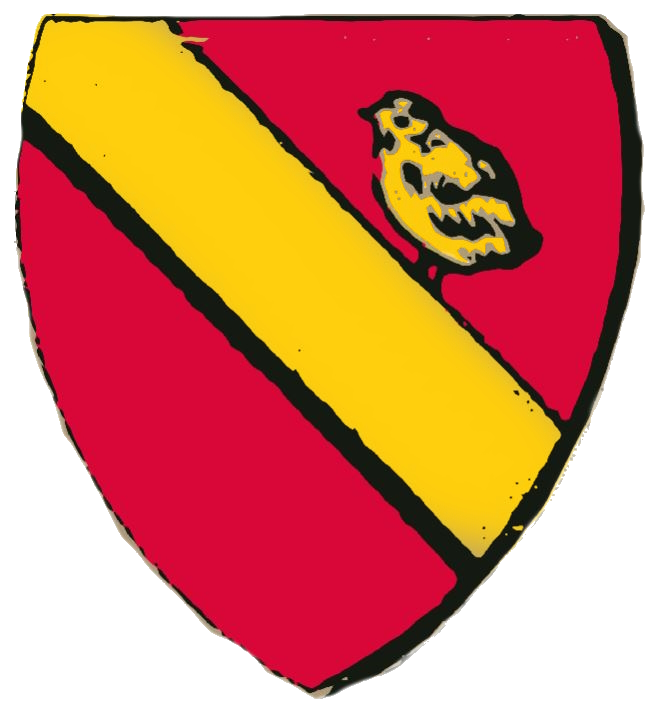The following article entitled ‘Lessons of Life’ appeared in the Independent weekend magazine ‘First’, in June 2009, and was written by Tony’s son, Paul.
Lessons of Life
The war was not over although the Luftwaffe air raids over Malta had long ceased. In a wine bar in Gozo, a small group of young men were lost in discussion over what the post-war period would be like. As they drank, their nationalist sympathies got the better of them and they started to throw wine soaked bread at the ubiquitous portrait of King George which hung on centre wall. As they turned to songs and insults, one of them excused himself and left the bar. Within twenty minutes, military police appeared and arrested Tony Pullicino, Sander DePiro and “Gege” Gatt.
All three had graduated in law in 1943 and Tony and Sander were still commissioned officers in the Royal Malta Artillery. Having manned an ack-ack gun at Fort Ricasoli during the worst times of the air raids, Tony now faced the threat of being charged with crimes against his own head of state. Fortunately, his father Philip was thick with the British Colonial establishment, and the charges were never brought against any of the three.
It was not the first time that Tony got into trouble. One quiet summer afternoon in 1943, Gunner No 42801 was dozing under his ack-ack gun when an Italian spotter plane flew high over Fort Ricasoli taking photographs of the port. The order to save ammunition for the bomber raids had been issued as munition stocks were critically low. But Gunner Pullicino got a bee in his bonnet to shoot the bugger down. He loaded his Bofors and took a pot shot. The single puff in the sky was seen from Army HQ in Castille and by the time the gun sound travelled across the port, they were on the phone to Ricasoli with talk of court martial. Luck had it that he was brought before Colonel Samut Tagliaferro, a relation of Tony’s mother. He escaped with strong warning.
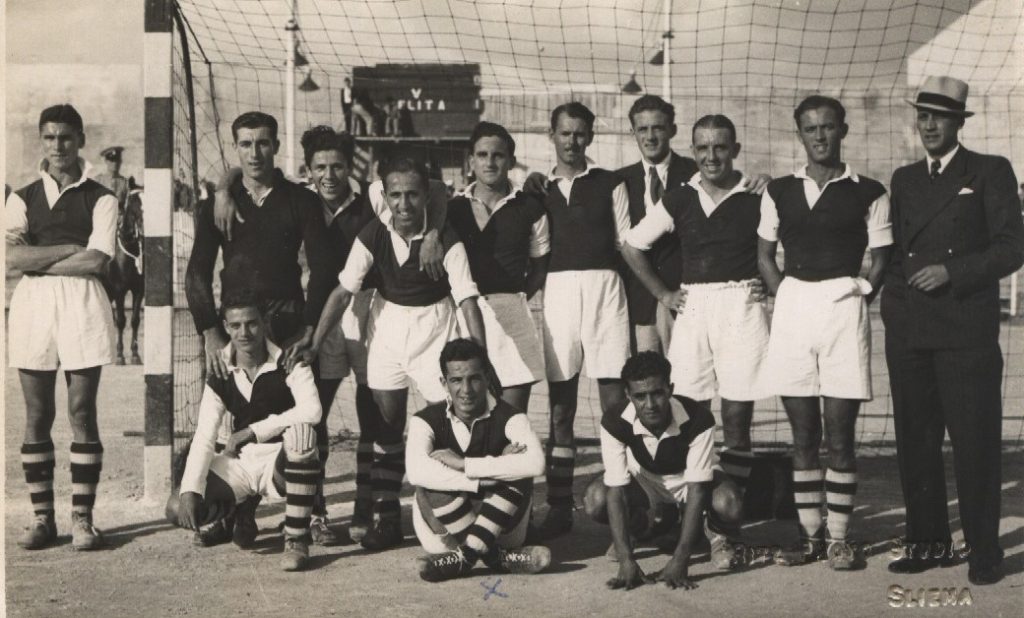
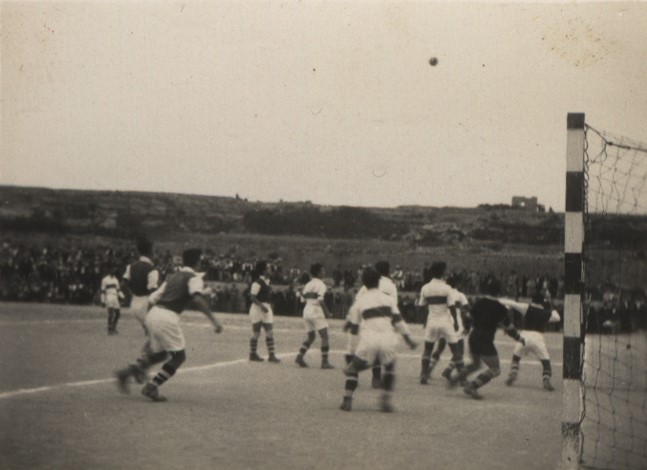
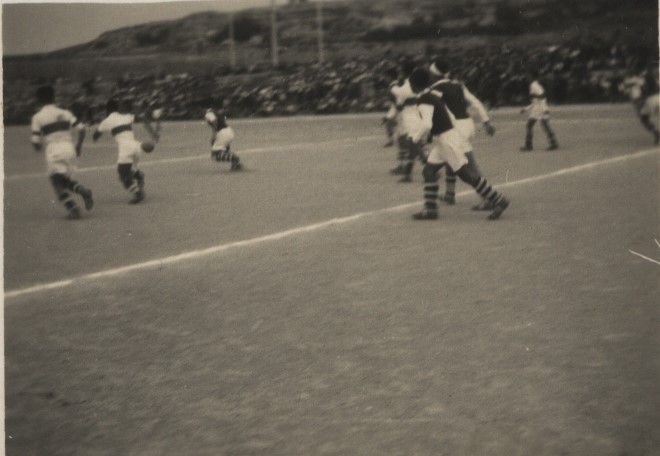
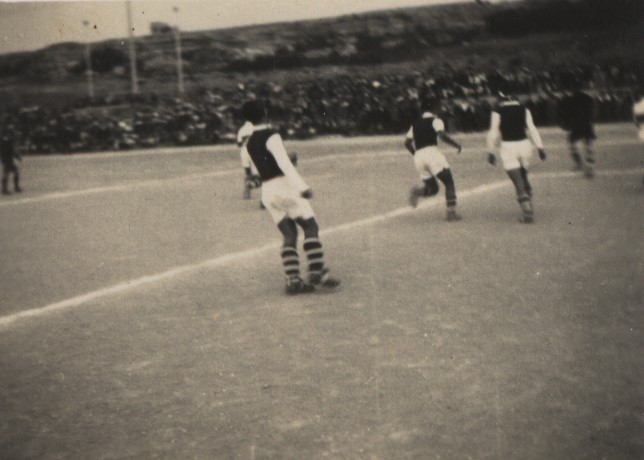
Before the war, Tony played centre forward with the Melita Football Club and they say he was good with hard headers on the cross rather than with his feet. That figures.
By 1947 Tony was working at his law practice in Rabat, in the shadow of his elder brother John, who was already an established criminal lawyer. The delegation sent by Enrico Mizzi to Mdina to discuss with Philip Pullicino the possibility of enticing John to enter politics were told to forget John, and to take Tony. The Nationalist Party was recovering slowly but was still up against the stronger anglophile Labour Party. These were also the days of the Boffa-Mintoff tensions and frequent general elections.
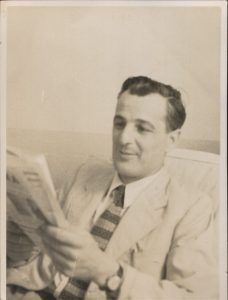
On his third attempt, Tony was elected on the Nationalist ticket in the 4th Electoral Division on the 19th May, 1951. He actually obtained more votes than George Borg Olivier in the 4th Division, with 1,810 first count votes. As both Tony and Labour member Guze Ellul Mercer lived in Sliema, Tony would pick him up in his car and take him back home after their parliamentary sittings. Such was the good nature of politics in those days.
On Mizzi’s death, the new young party leader, George Borg Olivier, a consumate strategist knew that he was facing a rebellious element of young turks within his party, consisting of Guze’ Marie Camilleri, Riccardo Farrugia and Tony. Tony’s strong showing in the 1951 general election left Borg Olivier a little nervous, given that he was Prime Minister of a coalition government. After some deliberation, Borg Olivier put forward the idea of Tony taking the Speaker’s Chair in the Assembly, a position which weakened Tony’s ability to perform from the backbench. He became Speaker of the Legislative Assembly on the 28th October,1952, and it is said that he enjoyed the position immensely. Nevertheless, events that followed made short work of his tenure.
By January,1953, the PN/Boffa coalition was even more fragile and Dom Mintoff, leading the MLP, was threatening a spill and no confidence vote from the opposition side of the Tapestry Chamber. Borg Olivier realised that due to the overseas absence of one of his deputies, a no confidence motion could only be blocked if the Speaker of the Assembly agreed to use his right to vote as an elected member of the House. When approached with the suggestion that the Speaker would be called upon to exercise his vote as a member, Tony refused to give the undertaking to his leader quoting Westminister parliamentary practice that the Speaker must at all times remain neutral. When Borg Olivier heard this, he was not a happy man. Tony in turn suggested that he resign as Speaker in order to allow his leader to choose a replacement who was not averse to breaking this convention. Borg Oliver took the offer up and Tony resigned, allowing Dr.Guze Cassar Galea to take the Chair and save the day.
Notwithstanding this, Borg Olivier became even more aware of Tony’s independent spirit . This incident has lived on within the Nationalist Party and as late as 1994, in a cabinet meeting, it has been said that a person closely related to Tony was blacklisted for public office on the basis that he shared the same unruly blood.
Tony started to realise that his political future was in jeopardy. Re-elected in late 1953, he just scraped through, as Borg Olivier decided not to contest the 4th Dvision but campaigned strongly in the 4th Division for two other candidates, namely Notary Philip Saliba and Perit Joesph Farrugia. Tony was again the leading vote catcher with 1,595 first count votes, but the other two candidates polled strongly. When the Fourth Legislature was dissolved just a week before Christmas of 1954, Tony had aleady decided to migrate with wife and his four children to Australia. In his last election, that of 1955, he failed to retain his seat.
His decision to migrate was spurred by coincidence. At the 1954 Commonwealth Parliamentary Conference meeting held in Nairobi, Kenya, Tony chanced to make friends with the Australian Federal Minister for Immigration, a certain Harold Holt and Hubert “Oppy” Opperman the federal member for Geelong. They met in the jungle bar in the evenings and soon started to joke about “Pully” being the next “ten pounder”, which was official slang for financially assisted European migrants to Australia. They offered him all their help if he should ever decide to go there.
Back in Malta, Tony continued to corresponded with Holt, a gregarious amiable type, and who in his own way was suffering under the perennial prime minister Robert Menzies, of his own Liberal Party. After much encouragement and promises of help, Tony, wife Edith and now five children, were sailing out of Valletta Grand Harbour on the migrant ship “Castel Felice” with another couple of hundred migrants from all over Malta. He was 39 years old and had two hundred pounds in his pocket.
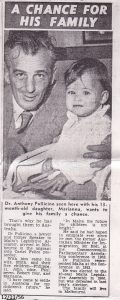
Needless to say, little help came from Holt when Tony turned up in Melbourne in late 1956. It was “Oppy”, the milder and unaffected salt, who tried his best to lend a hand. The days spent at the Nunawading Migrant Hostel, a euphemism for nissen hut hell, were very heartbreaking for Tony. Only three years before, he was Malta’s representative to the Coronation of Queen Elizabeth in Westminster Abbey and now he was camping out in the bush with the common ablutions block thirty yards away in the mud and rain. Like all migrants, he rued the day of his decision to leave home. Bob Dylan penned these emotions so well in the lyrics of his song “I Pity the Poor Immigrant” on his John Wesley Harding Album in the late 60’s.
But there was hope. He decided to study law again and make a go of it. He worked part-time in a solicitor’s office which had some Maltese clients and his Edith went out to various jobs, from machinist at a knitting factory, to packing potatoes at a local supermarket. When Tony failed his final law exam he confessed his incredulity to an Australian friend of his, Eric Margetts, who was a member of the strong and waspish Christian Science fold. After a week the news came back that the law establishment at the Melbourne University were not ready to accept that “migrants” enter the free professions. But Eric advised him to re-sit the exams as he had taken the liberty of speaking to people “further up”. A lot is said about equality in Australia. In those days, for migrants were sought for only as factory labour.
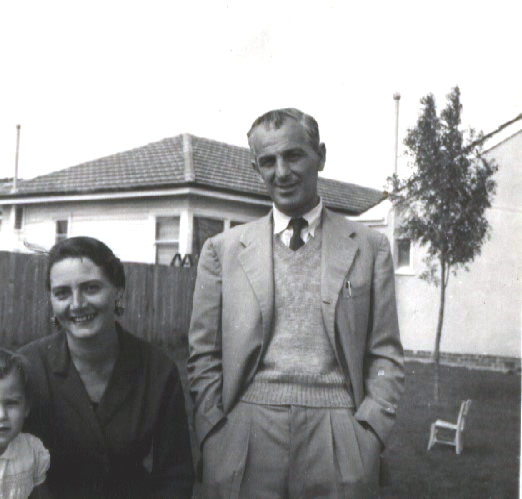
But Eric was right and in 1963, Tony graduated and opened up a law office in the city and started making some real money. The Maltese flocked to him. The city daily Murdoch newspaper, “The Herald”, ran a piece entitled “Migrant Makes Good”. Harold Holt sent him a telegram saying “Pully, I knew you would make it.” Tony sent one back saying “And not with your help.” Holt took the barb in good spirits and sent back a one worded response, the fencing term “Touche”.
Tony started paying back his childrens’ school fees that the Jesuits had charged him on a “pay back when you can” basis. And there was a new mortgage on a newer house. The eldest son, John, was at Monash University, along with numerous sons of “wogs” studying law. Australia was going to have to change and in time it did so.
Malta’s date with independence had arrived. A secret message from Borg Olivier reached Tony through Dr. Cachia Zammit who was visiting Australia that Tony was being offered the post of High Commissioner for Malta in Australia. Following the death of Captain George Stivala, Malta’s Commission was in the acting hands of Victor Gauci, who rightfully expected to be appointed as successor. He was a civil servant, young and enterprising and had taken an Australian wife. When Tony’s appointment as High Commissioner was accepted by the Australian Government, Harold Holt sent him a telegram of warm congratulations. Holt became Prime Minister of Australia, soon after, and the first issue they had was the conscription of Maltese migrant youths for the war in Vietnam. It was a thorny problem but it applied to all migrants regardless of which country they came from.
As for the young 30 year old Gauci, he was bitterly disappointed and harboured overt hostile feelings for years. On retirement, in published memoirs, he writes that Malta’s first High Commissioner after Independence, Dr. Anthony Pullicino, on taking office, unlike himself, lacked “experience” and “exposure” in diplomatic matters. As his memoirs belittle the qualities or successes of all Malta’s former diplomats saving one, one should not be surprised.
As High Commissioner, Tony employed a nineteen year old youth as his official driver. His name was Charles Muscat who nowadays is a successful retailer in Canberra and the Labour Party’s current representative in Australia. When home office did a check on the young Charles and found out his family had Labour sympathies, they ordered Tony to give him the sack. Tony simply refused to do so and home office eventually backed off. He knew how to sleep easy.
One day in Canberra, Tony went totally deaf. His ears had always been delicate since as a youth he underwent a “fenestration” operation on his ear bones. It seemed like the end of the world as conventional hearing aids could not help. Fortunately, he happened to be one of the few who could hear though the vibration of his skull, known as bone conduction. A set of special spectacles with built-in amplification sensors in the arms was found in Vienna and urgently shipped out to him. Until he could order sight lenses for these special spectacles, he attended official functions with the lenses missing and made mock of his predicament with all and sundry. Edith was not amused but happy that his morale was back on track. From then on whenever she got his goat, he would simply put his index finger up to the sensor arm and “switch her off”.
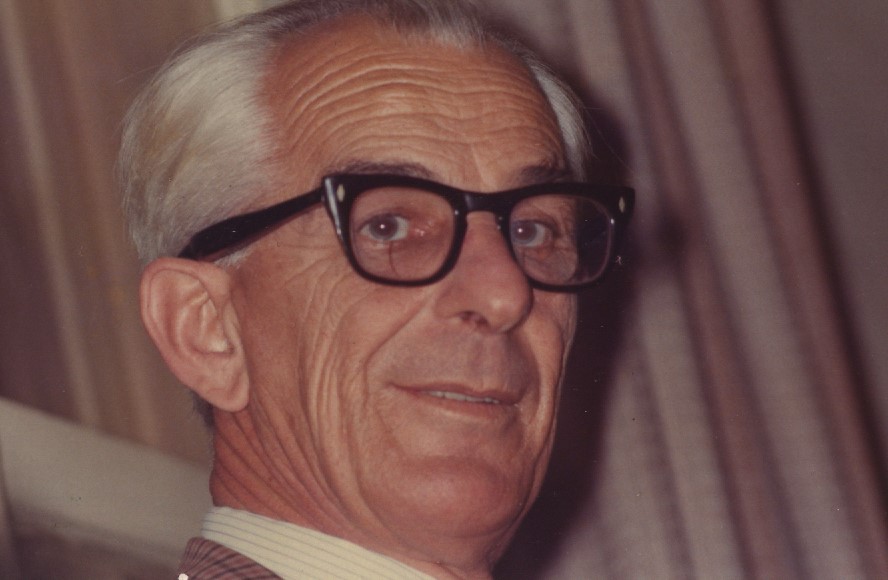
After serving a term in Canberra, Tony was appointed High Commissioner to London and was nearly through his term there when the Labour Party won the 1971 general election. He was given 24 hours to vacate the Chancery and official residence much to the embarassment of his staff, amongst them a wonderful Joan Barbara, sister of Agatha Barbara, Malta’s future president. Mintoff’s personal regret for issuing such an order to a former colleague in the old Assembly followed soon after when he found out that Tony’s son John had been paralysed in a water-ski accident and that Tony had spent his life savings in trying to care for his son. Mintoff offered him a seat on the Public Service Commission for an honorarium of Lm1,500 per annum, money which Tony sorely needed. Nonetheless, never the yes man, his appointment was not renewed the year after. Even Mintoff had no patience for “cani sciolti”.
Tony passed away in 1986 after a second heart attack which hit him on his return home after hearing morning Mass. It was deservedly quick. He did not leave much behind him save for a loving family, an inconsolate widow, a lot of good friends and the memory of an ordinary man who gave a life worth emulating.
